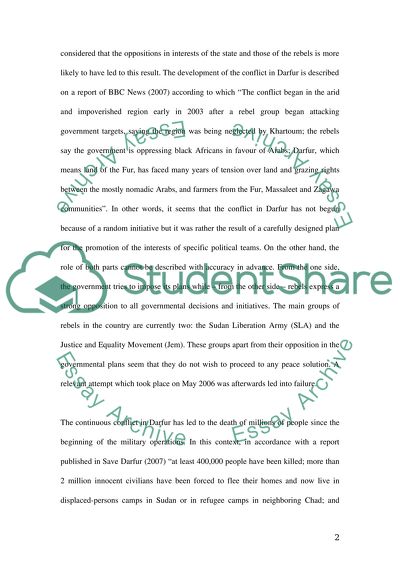Cite this document
(“Darfur Essay Example | Topics and Well Written Essays - 2000 words”, n.d.)
Darfur Essay Example | Topics and Well Written Essays - 2000 words. Retrieved from https://studentshare.org/miscellaneous/1540352-darfur
Darfur Essay Example | Topics and Well Written Essays - 2000 words. Retrieved from https://studentshare.org/miscellaneous/1540352-darfur
(Darfur Essay Example | Topics and Well Written Essays - 2000 Words)
Darfur Essay Example | Topics and Well Written Essays - 2000 Words. https://studentshare.org/miscellaneous/1540352-darfur.
Darfur Essay Example | Topics and Well Written Essays - 2000 Words. https://studentshare.org/miscellaneous/1540352-darfur.
“Darfur Essay Example | Topics and Well Written Essays - 2000 Words”, n.d. https://studentshare.org/miscellaneous/1540352-darfur.


